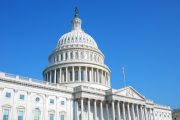
Much to the chagrin of gay rights activists, a federal appeals court ruled on November 1 that the military may maintain its “don’t ask, don’t tell” policy while the federal government appeals Judge Virginia Phillips’ decision in Log Cabin Republicans v. United States. The appeals’ ruling was made by a three-judge panel on the 9th U.S. Circuit Court of Appeals.
According to the ruling, We conclude that the governments colorable allegations that the lack of an orderly transition in policy will produce immediate harm and precipitous injury are convincing. We also conclude that the public interest in ensuring orderly change of this magnitude in the military if that is what is to happen strongly militates in favor of a stay.
The recent ruling by the 9th Circuit Court of Appeals is in response to an objection filed by the U.S. Department of Justice in October after Judge Phillips rejected the federal governments stay request to halt her order enforcing her decision.
The Justice Department defended its stay request asserting that the military requires sufficient time to implement the repeal of Don’t Ask, Don’t Tell in such a way that it would not cause confusion or uncertainty.
Tom Perkins, president of the Family Research Council, asserted, Its only logical that a stay should be granted to avoid the confusion that is already occurring with reports that the Pentagon is telling recruiters to begin accepting homosexual applications.
However, in Phillips rejection, she contended, Defendants merely conclude, without explanation, that confusion and uncertainty will result if the injunction remains in place. Thus, defendants have failed to establish they are likely to suffer irreparable injury if a stay is not granted.
Judge Phillips also declared that safeguarding constitutional rights outweighed the governments unproven concerns of the orders impact on military readiness and unit cohesion.
Likewise, in Judge Phillips September 9 ruling, October 13 injunction, and October 19 rejection of the federal governments stay request, she declared Don’t Ask, Don’t Tell to be in violation of due process and freedom of speech of homosexual military men and women.
Charles Rice, professor emeritus at the University of Notre Dame law school, called Judge Phillips assertions an example of tyranny of the judiciary, in an interview with The New American. He added, The very idea that don’t ask, don’t tell is unconstitutional is absurd.
Immediately following Phillips rejection of the governments stay request, the Justice Department filed objections asserting that the federal government should be afforded a reasonable amount of time to consider the terms of the injunction and to move for an appropriate stay before an injunction is made effective. A court should not compel the Executive to implement an immediate cessation of the 17-year-old policy without regard for any effect such an abrupt change might have on the military’s operations, particularly at a time when the military is engaged in combat operations.
The 9th Circuit Appeals ruling contends that the federal government does in fact require time to create a smooth transition.
The writers of the ruling also contend that current pending legislation would likely make the final determination, as the House of Representatives has already passed a repeal provision, while the Senate is expected to consider similar legislation during the lame-duck session in the form of the military defense authorization bill one that failed to pass due to the inclusion of such controversial provisions as this.
Regardless of the pending legislation, in response to the U.S. Court of Appeals ruling, the Log Cabin Republicans is expected to appeal to the full 9th Circuit appellate court or make an emergency application directly to the U.S. Supreme Court.
Dan Woods, legal representative for the Log Cabin Republicans, asserts that the appeal will continue and has not rejected the possibility of seeking emergency relief from the Supreme Court. We will continue to fight on for the constitutional rights of these Americans and look forward to a favorable decision on the merits of the appeal,” said Woods. “Meanwhile, we will discuss the courts order with our client to determine whether we will ask for a review of the order by the U.S. Supreme Court.
While gay rights groups are disappointed, they expected such flip-flopping on Judge Phillips ruling. Even after Judge Phillips rejected the governments request to halt her order enforcing her decision on October 19, military recruiters warned recruits that the policy could be reinstated at any time and warned service members to keep their sexual orientations to themselves. Similarly, gay rights groups encouraged military service members to withhold revealing their sexual orientations until a more permanent decision is made.
While military officials have encouraged the government to take no action with Don’t Ask, Don’t Tell until the completion of an official Pentagon review, President Barack Obama intends to repeal the policy.
According to CNN, The case puts Obama’s administration in an unusual position of supporting a repeal but filing court motions to prevent it from happening faster than planned.




